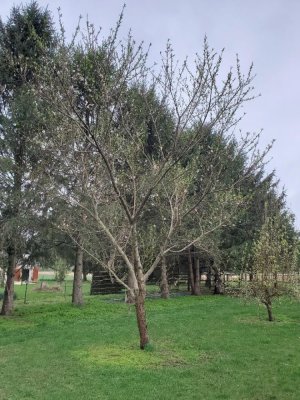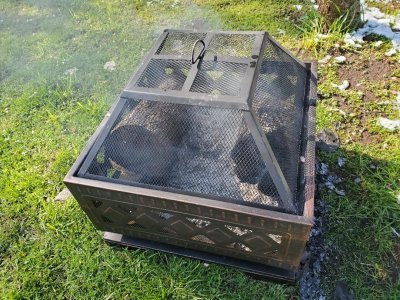heirloomgal
Garden Addicted
- Joined
- Jan 17, 2021
- Messages
- 5,190
- Reaction score
- 17,054
- Points
- 295
- Location
- Northern Ontario, Canada
@ducks4you I used to be a very passionate leek grower, and I experimented with lots of varieties. I've only gotten away from them because they don't have seeds and I wanted to experiment with other things. Honestly, they are so, so delicious homegrown. I can see why they charge so much for them at the grocery store (most expensive veg here). Much like tomatoes, if you don't grow them yourself you are just not going to get excellent quality ones. I make A LOT of soups, of all different kinds, but the best soups I think I ever made was with my fall harvested leeks. The taste is just out of this world. I've grown several good onion crops, but I stopped growing onions because they just couldn't compare to leeks in flavour and I can get really good onions here that tasted the same as the ones I grew. None of my homegrown onions ever 'wowed' me pretty as they were.
What I found worked for me was starting them early, and definitely keeping them regularly trimmed. That's essential or they get too thin and floppy and never thicken up. I treated them like a lawn while in my window. They also need rich soil to do well in the garden, some swear by plots where beans were previously grown. I enriched with manure. Spacing is also very key - like carrots, if too close they stay really small and stunted. They don't need much water, being an onion they would be prone to rot. They do need room, the more the better. (They will shock really hard, even die, transplanting outside after months inside if done too fast, gotta do that part gently.)
I never trimmed green off my mature leeks as - for some strange reason that is frequently recommended in cook books. For me that was a major part of the flavour, and being home grown there was no toughness to the stems. I found them really clean, unlike sandy store bought leeks. My leeks never got near as big as those store bought giants. I suspect a lot of fertiliser goes into those. I never fertilise in my garden, except for enriching the soil in spring.
Just writing about this makes me miss my leeks! I wonder if I should grow them again next year.....
Edit: They are divine roasted with other vegetables in the oven, little paprika, little salt & p, some olive oil....
What I found worked for me was starting them early, and definitely keeping them regularly trimmed. That's essential or they get too thin and floppy and never thicken up. I treated them like a lawn while in my window. They also need rich soil to do well in the garden, some swear by plots where beans were previously grown. I enriched with manure. Spacing is also very key - like carrots, if too close they stay really small and stunted. They don't need much water, being an onion they would be prone to rot. They do need room, the more the better. (They will shock really hard, even die, transplanting outside after months inside if done too fast, gotta do that part gently.)
I never trimmed green off my mature leeks as - for some strange reason that is frequently recommended in cook books. For me that was a major part of the flavour, and being home grown there was no toughness to the stems. I found them really clean, unlike sandy store bought leeks. My leeks never got near as big as those store bought giants. I suspect a lot of fertiliser goes into those. I never fertilise in my garden, except for enriching the soil in spring.
Just writing about this makes me miss my leeks! I wonder if I should grow them again next year.....
Edit: They are divine roasted with other vegetables in the oven, little paprika, little salt & p, some olive oil....
Last edited:







